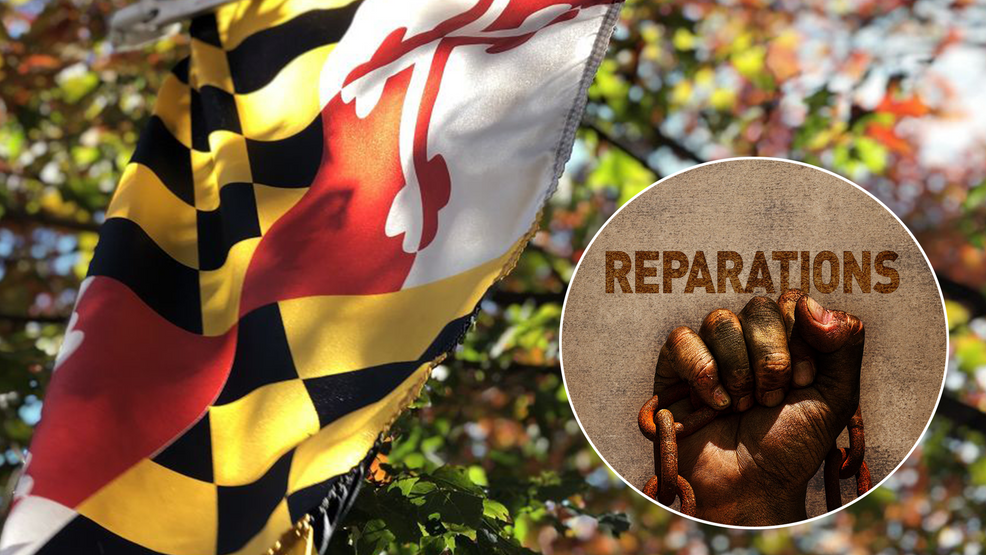
ANNAPOLIS, Md. (TND) — Maryland lawmakers are considering a bill that would create a reparations system by increasing certain taxes.
The Maryland Reparations Act of 2024 calls for changes to the state’s income tax rates and estate capital gains tax. In addition to increasing the marijuana sales tax from 9% to 14%, the legislation seeks to increase Maryland’s revenue by an estimated $1.2 billion in fiscal 2025, according to the bill’s fiscal note.
Under the proposal, the increased taxes would be distributed to the Community Reinvestment and Repair Fund. Established in conjunction with the state’s legalization of marijuana in 2023, the fund aims to direct money to low-income individuals and to “serve disproportionately impacted areas.”
“The purpose of the [f]und is to provide funds to community-based organizations that serve communities determined by the Office of Social Equity, in consultation with the Office of the Attorney General, to have the most impacted by disproportionate enforcement of cannabis prohibition before July 1, 2022,” Maryland state law reads.
Sponsored by Sen. Jill Carter, D-Baltimore City, she told the Senate Budget and Taxation Committee on Valentine’s Day this bill needs to be acted on immediately.
We are just in the beginning stages of our process of legalizing marijuana and we have made some great strides, like when we created the Community Reinvestment and Repair Fund, which is designed to put money back into, to prioritize communities of color that have most been negatively impacted by the war on drugs that unfortunately was a war mainly on poor and black people,” Sen. Carter said.
“What this bill would do would help to infuse that fund with more money, and it’s not too much of an ask, because in doing the research for this bill, I learned we use the lowest taxation rate of any state in the country that has legalized marijuana.”
READ MORE | Slave descendants demanding $70B in reparations from Missouri university: ‘Overdue’
Not all state lawmakers are backing Sen. Carter’s proposed measure. Del. Kathy Szeliga, R-Baltimore County, said she is worried that raising taxes, especially on marijuana, could have unintended consequences.
[Bill] opponents would say ‘You’re driving it underground, you’re creating a black market.’ This is exactly what is happening in California,” Del. Szeliga said. “Obviously the guy on the corner, selling weed, is not charging any tax.”
In 1996, California became the first state to legalize the use of marijuana for medical purposes. The state went on to lead the nation in legalizing recreational marijuana in 2016.
Since recreational legalization, California has raised marijuana tax to $9.25 per ounce, with an additional 15% excise tax, according to state code. With higher taxes pushing the California cannabis industry underground, Gov. Gavin Newsom formed a law enforcement task force in 2022 to “crackdown on illegal operations.”
“By shutting down illegal grow sites and applying serious consequences to offenders, we are working to curtail the criminal organizations that are undercutting the regulated cannabis market in California,” Gov. Newsom said in an October 2022 press release.
Meanwhile, back in Maryland, Del. Szeliga said this bill is a non-starter. When asked if reparations will fix the historic injustices slavery caused in the black community, Del. Szeliga said fixing the state’s education failures in underserved communities should be the focus.
I think, personally, the best way to help the black community is with school choice,” Del. Szeliga said. “We have kids that generationally are trapped in failing schools.”
“There are schools, especially in Baltimore City, where parents and grandparents attended the same failing schools. The best way out of poverty is a great education,” Del. Szeliga added.
READ MORE | ‘Squad’ member calls for slave descendants to get $333K each: ‘Do the right thing’
Colorado, New York and Massachusetts have launched reparations study groups, according to Politico. The California Legislative Black Caucus announced at the end of 2023 it would propose 14 bills in Sacramento to address reparations.
At the time of publishing this article, The Maryland Reparations Act has not advanced out of its assigned Senate committee.
Sen. Jill Carter did not respond to text messages, phone calls or emails for comment on Thursday and Friday for this article. Any responses received will be added.
Follow Gary Collins on X and Facebook. Do you have news tips on this story or others? Send news tips to gmcollins@sbgtv.com.


